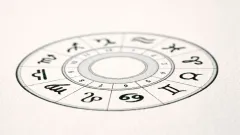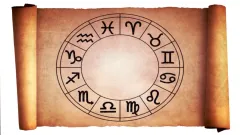A man's best buddy is a boo, Even if we are not frequent readers, we have all read at least one fiction and one non-fiction book in our lifetime. People rarely take the time these days to read a minimum of 12 novels in a calendar year. Instead of reading a book, people would rather watch a movie, listen to an audiobook, or watch a podcast. However, occasionally an excellent book makes an impression and enables us to develop within. It might be a genuine piece of knowledge about reality that is not fiction, or it could be a fictitious account of a person who shares qualities with us. It aids in our personal growth in a certain sense.
The value of self-development in one's life
Becoming a better person overall is the process of self-improvement or personal growth. To improve one's competencies and talents, competition is necessary. It addresses an individual's intrapersonal and interpersonal growth that enables them to interact with their surroundings productively. Understanding or identifying with oneself is the first step toward self-development. Exploring oneself and society, thinking clearly, and understanding one's views are all parts of identification. One of the earliest and most crucial steps in knowing oneself is identification. Step two is identification; acceptance is the following step.
Accepting who you are helps you learn to better manage and regulate your emotions. When someone learns to embrace who they are, they stop blaming themselves or other people for their bad luck and start asking themselves why it happened, to gain knowledge from their errors. Self-development happens organically throughout life, yet occasionally we pick up knowledge from others and apply it to our situation. Books are a terrific means to convey experiences and tales from the writer's pen to the reader's head, as it may happen via other people's stories and experiences.
Top 10 Best Books to Read For Self-Development in 2024
1. Man’s Search for Meaning by Victor Frankl

Image Source: Twitter
It's about overcoming tragedy and deriving meaning from it, as the name implies. To demonstrate that even the most incredible catastrophe may have a purpose, Holocaust survivor and psychiatrist Viktor Frankl discusses his own experiences in Nazi concentration camps as well as the concept of logotherapy. The key thesis he espoused in this very book was that although we are powerless over the events in our lives, we are in charge of how we react to them.
2. Atomic Habits by James Clear

Image Source: Twitter
The book focuses on making tiny adjustments to enhance your quality of life in general. It offers doable and tested methods for assisting someone in leading a more contented existence. The book offers a four-step, simple technique for forming habits along with useful examples. It all comes down to making tiny, straightforward adjustments that can add up to bigger benefits.
3. The Monk Who Sold His Ferrari by Robin Sharma

Image Source: Twitter
The main lessons of the book are how to build a life that will guarantee lasting happiness and what happiness is. It gives us a glimpse into the life of a guy who, as a result of his unstable lifestyle, encountered a crisis. The book offers techniques that can change a person's life and lead to enlightenment, unmatched wisdom, and tranquillity.
4. The Alchemist by Paulo Coelho

Image Source: Twitter
Through the story of a shepherd child, Paulo Coelho discusses passion, enthusiasm, and identity. The book offers a perspective on life's incredible lessons, emphasizing the value of living in the now and pursuing your passion.
5. As a Man Thinketh by James Allen

Image Source: Twitter
It is among the founding works in the book genre of self-development. One of the main life lessons in this book is that a guy is the sum of his thoughts. The book's most significant lesson is that ideas affect behaviour, that you have the power to mould the world just as much as you are impacted by it, and that your thoughts may either make you feel youthful or age more quickly.
6. The Secret by Rhonda Byrne

Image Source: Twitter
The law of attraction, which states that you must have positive energy to attract positive things into your life, and how to apply it to live a meaningful existence, are the main themes of this book. In the book, life lessons are shared on the steps of attraction, which begin with asking, believing, and receiving.
7. Thinking, Fast and Slow by Daniel Kahneman

Image Source: Twitter
This book, written in an approachable, common reader-friendly style, deals only with scientifically supported concepts backed by research, but it also explains how the two brains systems-conscious and automatic-constantly strive to take autonomy of our behaviour and actions, which can lead to errors in decision-making.
8. Awaken the Giant Within by Tony Robbins

Image Source: Twitter
We learn how to begin taking charge of our lives in this book. Tony Robbins wrote a ground-breaking book about how we may take charge of our own lives. The brilliant concept in this book is to link positive behaviours to pleasure and poor habits to pain—a process known as conditioning. He contends that a big part of experiencing and resolving that issue is altering the language we use to explain things. Among the most important lessons from the book is the value placed on creating and communicating your own rules since doing so may have a profoundly good impact on an individual.
9. Meditations by Marcus Aurelius

Image Source: Twitter
The Roman Emperor Marcus Aurelius wrote a dozen volumes in all to preserve the lessons he learned from stoic philosophy. We can learn a great deal about discipline, reasoning, and faith from his experiences. These works clarify that everything happens for a purpose even if genuine reasoning doesn't necessarily require sense. He held that you will always experience the suffering that you bring upon yourself and that life is too short to moan about.
10. How to Stop Worrying and Start Living by Dale Carnegie

Image Source: Twitter
Dale Carnegie explains in this book the incredible methods to address 'worry,' which is the root of many issues in our lives. This book will take you on an enlightening trip to learn how to set boundaries between your problems and yourself. He has outlined a three-step method to stop worrying in his book.
Also Read: Top 10 Self-Help Books for Women Should Read in 2024























